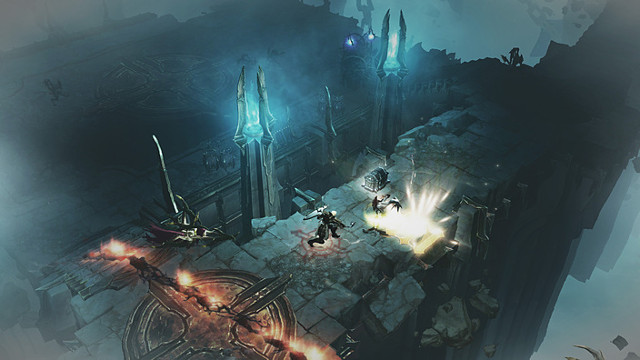Eurogamer Is Correct That Game Reviews Are Broken, but Removing the Score Is Not the Solution
In February of 2015, popular gaming site Eurogamer.net announced that they are no longer going to put scores on their game reviews. My opinion on this is nuanced and complex, but, simply put, I don’t see this as a pro-consumer solution.
See, my understanding is that Eurogamer believes that the current review system is broken. (Their words: “In the present environment, scores are struggling to encompass the issues that are most important to you.”) As someone who’s been writing game reviews for more than five years now, I wholeheartedly agree with that statement. Yes, game criticism is failing consumers, and it needs to be overhauled in order to better serve the gaming audience.
Review scores are feeding a much larger problem, which we’ll call “The Great Metacritic Debacle.” What we have is big-name production houses giving bonuses to game developers who can produce work that maintains a predetermined Metacritic score, and developers (who are already obnoxiously underpaid) are missing out on those bonuses because their games’ scores were a fraction of a point away from hitting their goal. Oftentimes, this is simply due to a couple review outlets throwing off the curve.
The flaw in this can be boiled down to the fact that numbered scores are inconsistent from outlet to outlet. Numbered scores are broken, because the industry never agreed on a standard, and Metacritic exacerbates this by trying to be that standard without taking the time to fully understand the scores it’s aggregating.
Here’s an example (which I’ve given in the past): I’ve talked to reviewers who think a score of 5/10 is average, because it’s in the middle of the scale. I’ve seen others who claim 7/10 is average, because in a classic school grading system that would be a C grade. Those two reviewers will have a substantial variance in their review scores, even if their opinions on a particular game are exactly the same.
Metacritic assumes that a 7/10 is universal and treats it as such. This is a problem.
However, simply removing the review score is not the solution. Eurogamer’s decision to do away with review scores is not going to have an impact on how Metacritic works, because there are still hundreds of other sites posting scores to Metacritic. Additionally, if I’m understanding this correctly, Eurogamer always has the option to simply opt out of posting their scores to Metacritic.
There was a point in my career in which I was staunchly opposed to number scores because they are so clearly broken; like Eurogamer, I didn’t want to put a score on anything. However, after a lengthy discussion with my peers, I was forced to rethink that position. Ultimately, what swayed me was the simple idea that users almost certainly want review scores. Yes, as far as I can tell (from watching traffic trends), readers want scores on our reviews, which implies that not giving scores is doing readers a disservice.
The real problem is that it’s getting harder and harder to write a review that properly encapsulates what a game is actually about. Part of this is that games are constantly evolving. Diablo III is a great example of this; it launched in a pretty rough state, but was eventually refined into something incredible. The Ultimate Evil Edition is a vastly different game than the Diablo III that came out at launch, so the score awarded to the game at launch is no longer representative of the final product.
But this problem isn’t mitigated by removing the score. The text of that review is still outdated after a new version of the game is patched into existence, whether that review has a score or not. Removing the score does not actually address this problem; it’s barely even a baby step in the right direction (and it’s probably a step in the wrong direction).
The real foundation of this problem, in my opinion, is that Internet game reviews follow the format set by print media decades ago — we want to write a game review like it’s one big essay, because that’s how print reviews are formatted. But thanks to the Internet, we’re no longer forced into that template. We can create reviews that feel more like an extended conversation, reviews that evolve over time. I’m not talking about revising review scores here; I’m talking about an idea I refer to as “nonlinear content,” the idea that we can build a review in smaller pieces over an extended period of time rather than as one single unit.
Ultimately, this is an incredibly complex problem, and treating it as a simple one is doing a disservice to anyone who reads game reviews. While I can’t say that my nonlinear review strategy is a perfect solution, I feel like it’s at least addressing the problem in a way that makes sense and presents the foundation of an idea that can be revised and iterated upon.
Which is to say that the problem is not yet solved, but I at least feel like there are better ideas currently in play than simply pretending review scores don’t need to exist. Those scores still serve a very important purpose, even if that purpose is being hijacked by the flaws of a broken review system.



